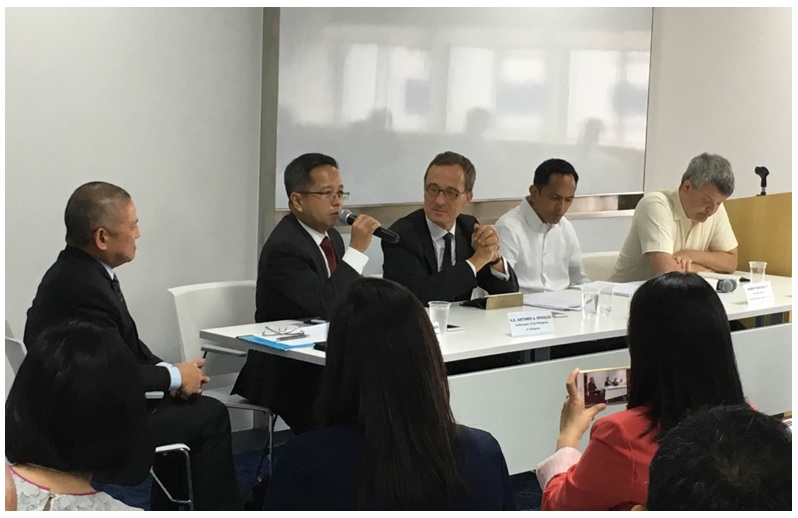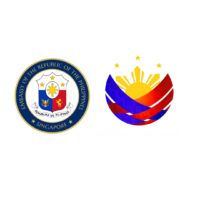
19 August 2016, Singapore – A briefing on the Philippine Government’s socio-economic agenda and trade and investment promotion platform was held for the members of the Europe-ASEAN Business Alliance (EABA) by the Philippine Embassy and Philippine Trade and Investment Centre in Singapore.
The EABA consists of ABN-Amro, ASEA Brown Boveri (ABB), Aria Singapore, Danone, East-West Seed, FrieslandCampino, GlaxoSmithKline, Michelin, Oiltanking, Philips, Rabobank, Roche, Rolls-Royce, Royal DSM, Sanofi, Shell, Syngenta, UBS, Unilever, and Vriens & Partners.
Ambassador Antonio A. Morales gave an overview of the current political transition, the status of Philippine-Singapore economic relations, and the Permanent Court of Arbitration decision on the case of the West Philippine Sea-South China Sea. Philippine Trade Counsellor Glenn Peñaranda briefed on the Philippines’ high-growth sectors, prioritized sectors for new foreign investment, preferred economic activities for incoming businesses, and incentives under the export processing zone program.
Other presenters spoke on other socio-political aspects of the new Government. Euben Paracuelles (Executive Director and Economist, Nomura Securites) on the positive economic developments of the Philippines (solid fiscal reforms under the previous administrations, low debt situation, satisfactory budget performance, liberalization of the banking sector, interest of international banks to set up in the country). Paracuelles projected that the Philippines will attain 6.7% GDP growth in 2016 and 6.5% in 2017 and stated that curbing unemployment remains a major economic challenge for the Government.
Malcolm Cook (Senior Fellow, Institute of South East Asia Studies) assessed the first 50 days of the new Philippine Government, stating that President Rodrigo Duterte, as a “liberalizer” and having achieved a super-majority (80%) control of Congress, has the good chance to amend the Philippine Constitution and to achieve a lasting peace in Mindanao. Cook said that the new Government might be trying to achieve “too much, too soon”.
During the open forum discussion, the presenters addressed queries about the business process outsourcing sector (now growing at 20-25% per annum and contributing estimated 10% to GDP), the automotive industry (growing and complementing the spare parts, aerospace and steel industries), energy access (electricity is expensive but will become cheaper, as many approved FDI projects are for renewable energy and the Philippines has one of the world’s most diverse energy source mixes), free flow of goods under the ASEAN Economic Community (the new Government will continue with its international commitments and Philippine companies have growing business in other ASEAN countries), environment protection (the new Environment Secretary is an environmental activist), and corruption (the new Government has a strong position on transparency in governance).






